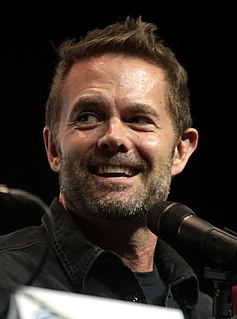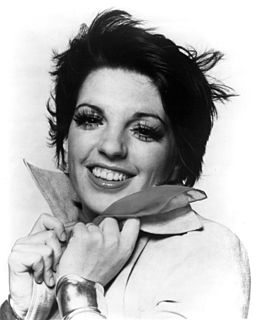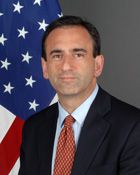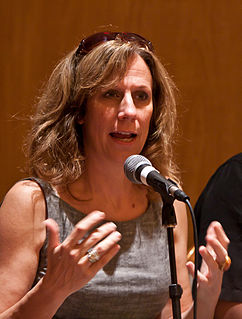A Quote by Nat Hentoff
The book that really, really shaped my politics and has forever is Arthur Koestler's "Darkness at Noon," which is a novel based on terrible fact about what it was like in Russia during Stalin's time when people actually believed that to get to the point where the Proletariat would triumph, anything that was necessary to be done should be done; the means didn't count.
Related Quotes
I am not sure I knew what I was doing, writing an "apocalypse" novel, when I started this book. Now that the book is done, I can own that I have in fact written an apocalypse novel, one that speculates on a dark, dark future. Why I did it, I really don't know - every time people read my work they comment on its darkness, its sadness.
I was less angry at [Carl] Armstrong, though I was angry at the people who came to his trial: Dan Ellsberg, who ordinarily I respected a lot; Philip Berrigan; the guy who teaches at Princeton still - I can't remember his name. And they were saying - well, they were saying, really, what Arthur Koestler had people saying on "Darkness at Noon." The means were unfortunate and, sadly, someone died, but the end is what is important and this was a great symbolic - something or other - sign against the war in Vietnam.
Most people will agree that they would like if they were treated by other people based on what they have concretely done in their life, not what other people have done, with their lives. Focusing on being a person instead of an Asian or an anything seems to promote a worldview that encourages people to treat others based on what each person has specifically done in their life, which seems like it would reduce such things as war, racism, unfairness, "hate crimes".
I've read something that Bill Gates said about six months ago. He said, ‘I worked really, really hard in my 20s.’ And I know what he means, because I worked really, really hard in my 20s too. Literally, you know, 7 days a week, a lot of hours every day. And it actually is a wonderful thing to do, because you can get a lot done. But you can't do it forever, and you don't want to do it forever, and you have to come up with ways of figuring out what the most important things are and working with other people even more.
Russian people really don't like it when somebody does horrible things in Russia, and then can calmly go travel to another country and spend time there. And this is what needs to be done: the Russian people need to be told this, because in today's world, just doing something is not enough. You've got to tell about it, too. If you've done something and haven't told about it, it's as good as if you hadn't done it at all.
Jesus modelled that we don’t need to talk about everything we’ve done. It’s like He’s saying, what if we were just to do awesome, incredible stuff together while we’re here on earth and the fact that only He knew would be enough? If we did, we wouldn’t get confused about who was really making things happen. Not surprisingly, we’d get a lot more done too, because we wouldn’t care who’s looking or taking credit. All that energy would be funnelled into awesomeness.
It's a waste of time to think about what I should have done and what I didn't. I really believe in that. That's how I react to the if-onlys of life. To moan and groan about something I shouldn't have done, could have done, might have done...who knows? It is what it is. You got what you got. I live my life one day at a time.
We got the Iran sanctions done. We got an agreement by Russia to allow us to use Afghanistan to transit supplies for our forces. We got a Security Council resolution on Libya. We got Russia into the WTO to bring in to it a rules-based trading system. All of those things were in our interest. The point is not whether we should work with Russia. The point is whether we should sacrifice other important interests to do so.
I was very interested in politics in college and was heading to be a lawyer. I have a degree in economics and I was interested in it. I hadn't really gotten super serious about it and I'd done a lot of student politics in high school. I really think it would be interesting and fun and challenging to go into politics.
The more important point, however, is not about what the money does. It's about what has to be done to get the money. The effect of the money might be (democratically) benign. But what is done to secure that money is not necessarily benign. To miss this point is to betray the Robin Hood fallacy: the fact that the loot was distributed justly doesn't excuse the means taken to secure it.
It is easier to talk about issues; it is easier to say you're a feminist because it's actually awesome to be one. The panopoly of people identifying as feminists is really excellent now that we've come to a point where all these really interesting voices are rising up and saying they're feminists - women of color, trans people, gay folks, everybody. It's an exciting time to actually define as that because it means that people are really feeling like their voice is what's the most important thing in the movement, and I love that.
In Germany, they were very interested in talking about their past. I respect that, and I think they've done quite well. It's become a kind of obsession, as it bloody well should, when compared, for example, to France, which hasn't done anything. France has done no work about their part in transporting eighty thousand people to their deaths. They are still the guy in the leather jacket with the onion, who's a part of La Résistance. In fact, they collaborated, not resisted.





































